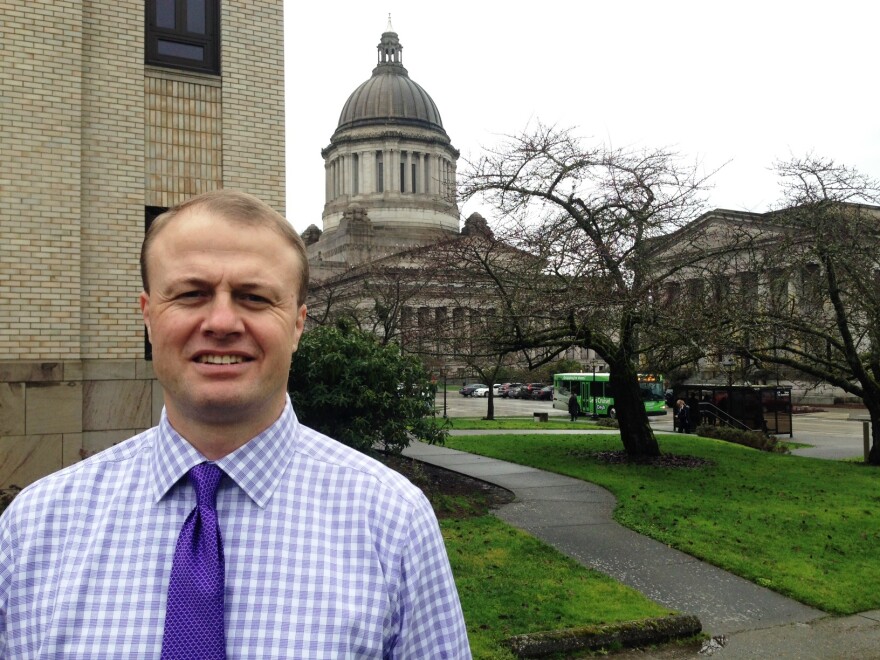Washington Attorney General Bob Ferguson says initiative promoter Tim Eyman violated campaign finance laws for personal gain. Ferguson filed a lawsuit Friday against Eyman and a signature-gathering firm he worked closely with.
The lawsuit alleges that in 2012 Eyman overpaid a company called Citizen Solutions to collect signatures for a tax fighting initiative. In return, the lawsuit says, Eyman received a $308,000 unreported kickback from the signature-gathering firm and later used about a third of that money for personal living expenses.
The remainder of the money, approximately $200,000, was allegedly paid to a Virginia-based company to pay for signature gathering for a separate initiative to establish penalties for interfering with signature-gathering efforts. That measure, I-517, did not pass in 2013.
“Our lawsuit alleges an elaborate web of unlawful financial transactions," Attorney General Bob Ferguson said at a news conference in Seattle. "The result: Tim Eyman personally profited from these transactions and caused inaccurate and misleading reporting.”
Eyman’s attorney, Mark Lamb, says his client did nothing wrong and accuses the attorney general of heated rhetoric.
“This dispute is simple. It's whether two transactions needed to be included on campaign reports—the Attorney General believes that they should and we don’t,” Lamb said in a statement.
Ferguson is seeking $1.8 million in penalties against Eyman plus repayment of the $308,000. In addition, the lawsuit asks the court to permanently bar him from managing the finances of any political committee in the future.
The lawsuit also names Citizens Solutions and one of its former principals.
The case began in 2012 with a citizen complaint filed with Washington’s Public Disclosure Commission. The complainant was Sherry Bockwinkel, a Tacoma activist who once ran her own signature-gathering firm. Eyman’s attorney has called Bockwinkel a “disgruntled former vendor.”
In 2015, the PDC voted unanimously to refer the case to the Attorney General’s office. What followed was a lengthy court battle over what banking and tax information Eyman had to turn over to the Attorney General’s office.
This isn’t the first time Eyman has faced allegations of evading campaign finance laws to personally enrich himself.
In 2002, Eyman admitted to the Associated Press that he used campaign contributions to create a secret $200,000 fund to pay himself. A headline in The Seattle Times read, “Eyman: I took money, lied about it.” Then Attorney-General Chris Gregoire later sued Eyman for campaign finance violations.
At the time, Eyman’s critics predicted his legal troubles would put him out of business. That did not happen. In the intervening years he has continued to sponsor and pass initiatives—most of them aimed at requiring a two-thirds threshold for tax votes in the legislature, which the Washington Supreme Court ruled in 2013 is unconstitutional.

